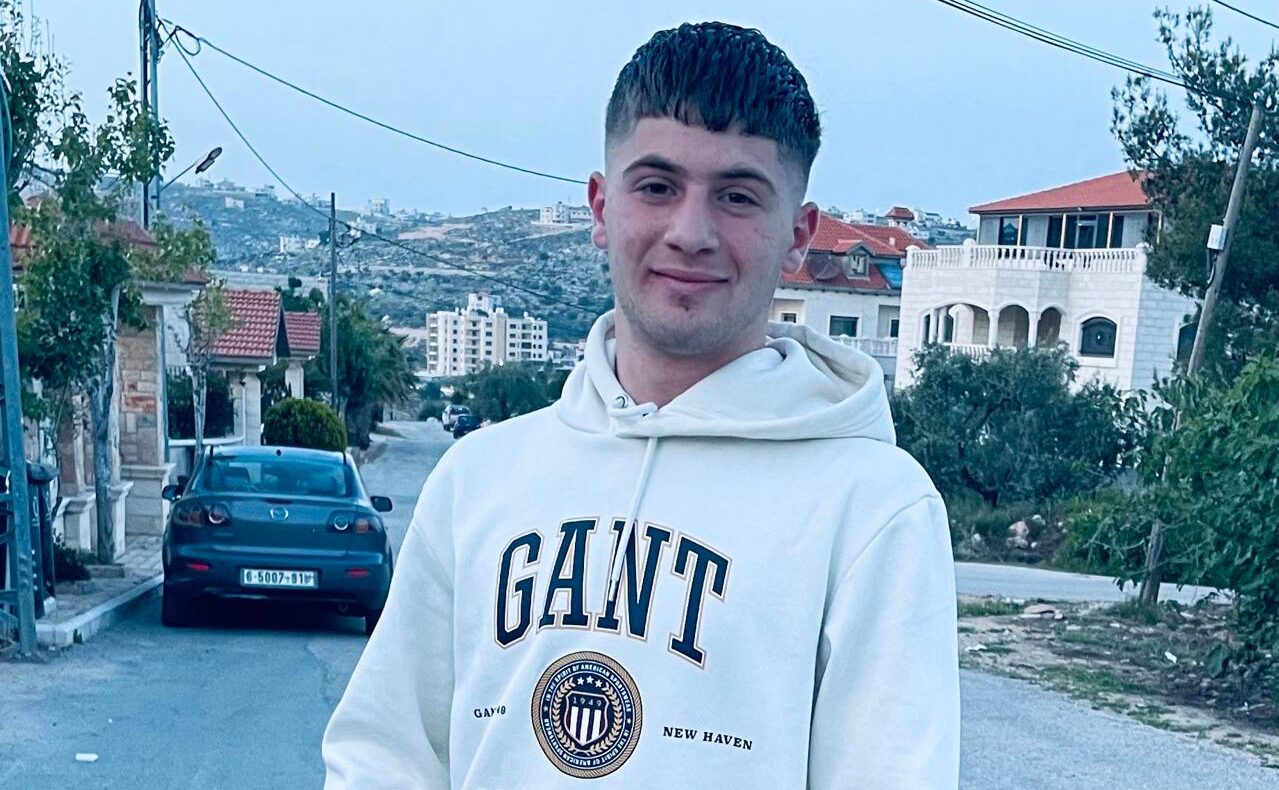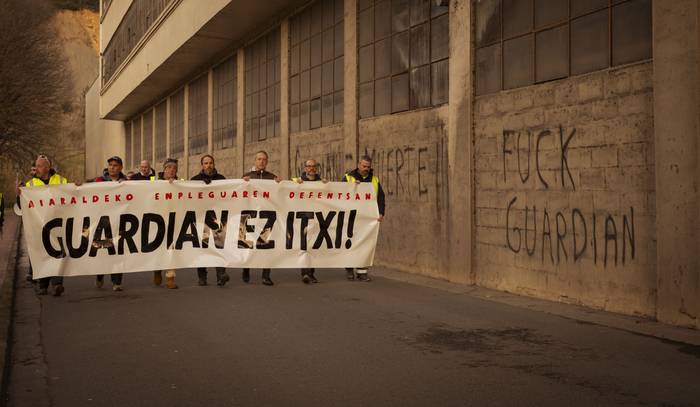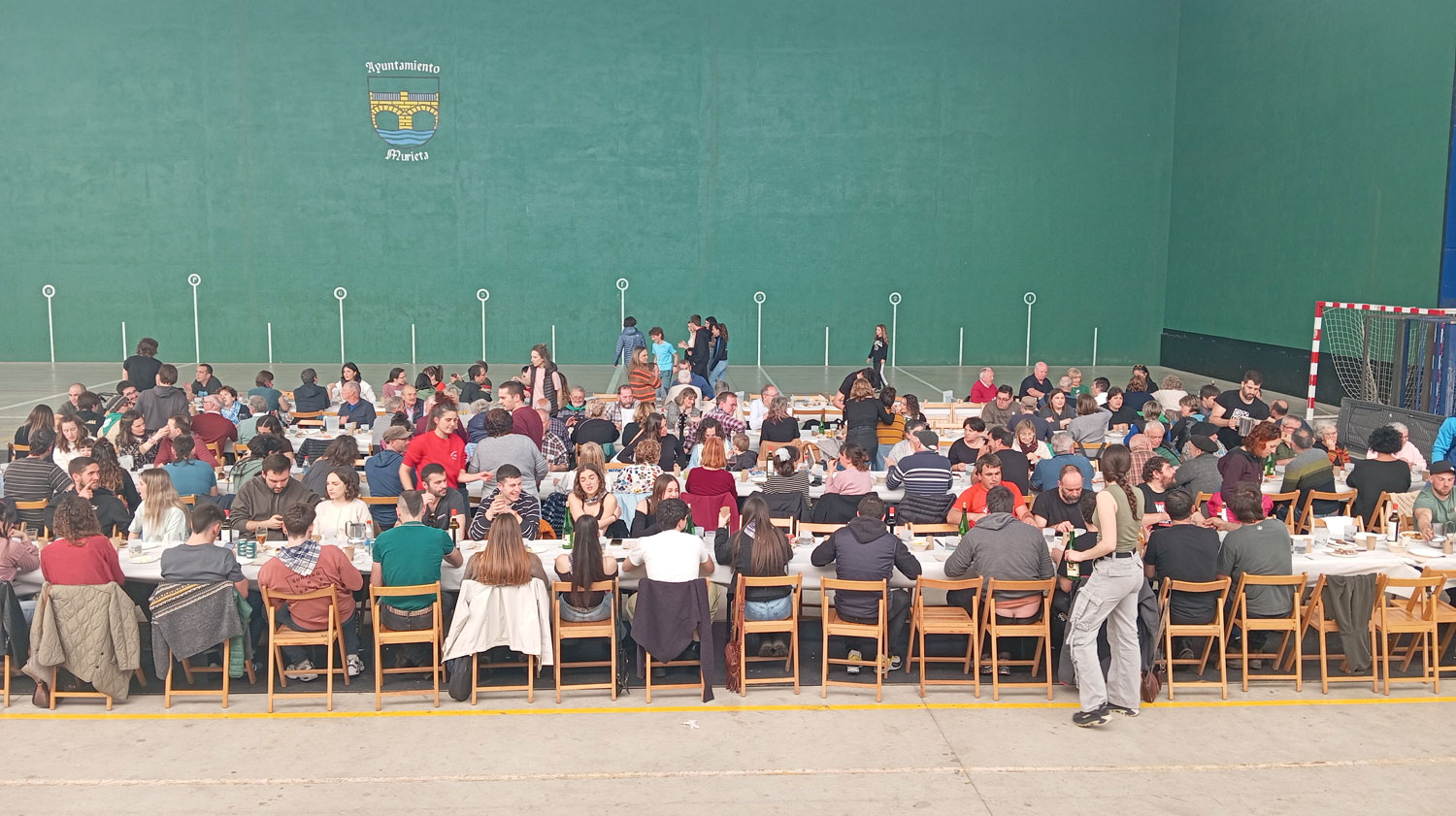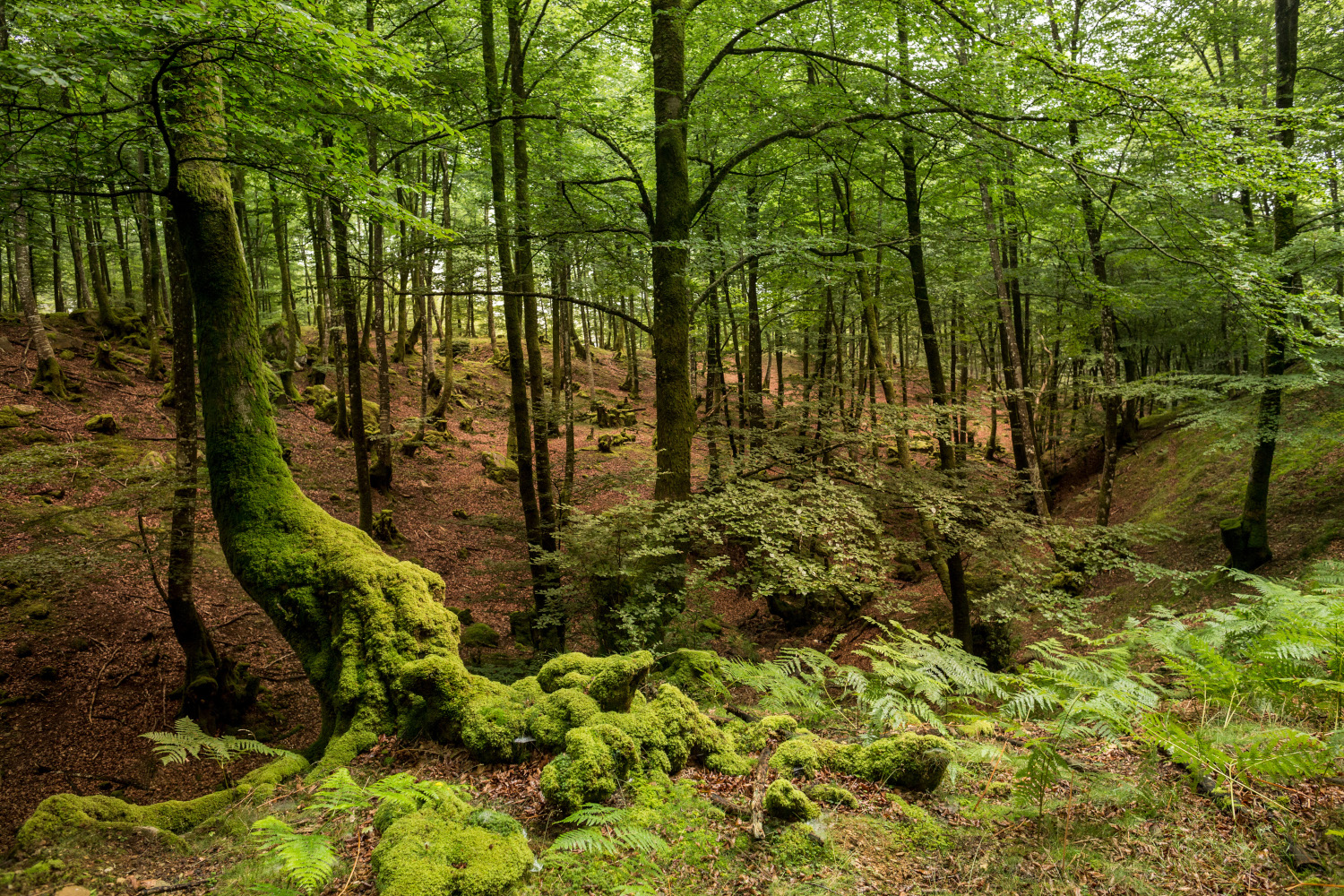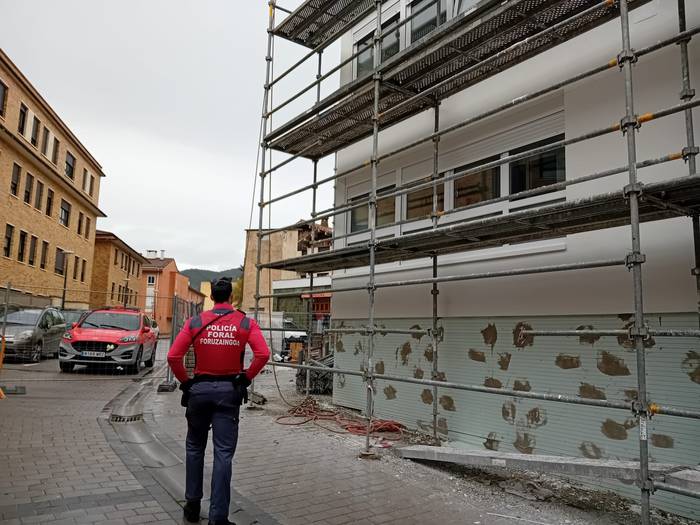"As you don't leave it free, you die."
- In the new album by Josetxo Goia-Aribe, a voice by the Navarra singer Jotan Navarra. He knocked on the door and received us as he sang. The eternal essence of the jota, in the renovated skin, always beautiful, juicy and gustose.
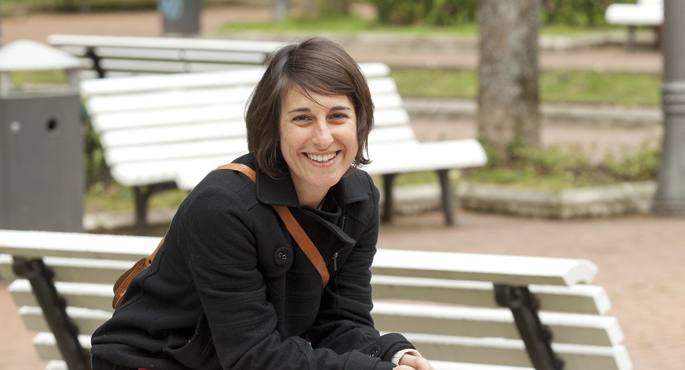
“I sing the jota of my grandparents / I sing the jota to the whole world / and where I always meet / the old emotion keeping silence”. Do you really sing with my grandparents?
Yes. I'm from Tafalla, and there you're still not surprised to be with the man and the woman. It's in the environment. Most of my age has passed through school, as they have done in football or on bicycles. The school of the young Flamarique has a great tradition in our town, not in vain! In that I sing my grandparents' jack, from day to day and then. A popular expression, which we're transmitting from hand to hand, from knees to knee.
The transmission is in force in Tafalla…
Yes. In the school of young girls you will see both children and adults learning to sing the young girl. The student spends hours singing and listening. Next, there are the festivals and the girl's competitions. As a transmission, however, I also see the danger: academicism, that is, loss of freshness. It's also out there. Learning to sing on the street, or taught by your mother, has another taste. I've still been at a friend's house. He's a chest kid. When I helped him sleep, my mother said to the child: “Your mother sings you jotically every day, right?” “Yes,” nin. “The professional will sing you today!” Ha, ha, ha… And I sang him, as I gathered my eyes together. It was wonderful… I sang to him: “The girl when she goes to Mass / goes in front of her mother. / Communicate a bunch of basil / that the air makes it.”
Who created the jotas? Coplas, I mean.
For a while they were created by the people. Now that's the case, competitions have also been organized to write new jotas in different locations, and people invent them explicitly. For some time they were invented by the people, we don't know who. One invents, collects others, sings in his own way, another adapts in some way… So. It is not strange to hear him here and there, even if there are some small changes. Characteristic of oral transmission.
What did you learn from the girl in school?
Jotas, pasacalles, popular songs… That, in the background. We learned them by singing, there was no other way. The Flamarique sisters sang jotas, we repeated them in pieces. We didn't have sheet music, there was nothing. I have just learned that the two Flamarique sisters, at the age of 8, were taken to the Gorriti Theatre in Tafalla. They were told to sing and sing. The people, amazed, listened to them and, from that moment on, did not stop singing. They have sung jotas for America, they have run most of the corners here and there, the orchestras have accompanied them… Those sisters taught the young people to sing jotas, they took control of the school until they taught us. That has been the case. Surprisingly, women have been the dominators.
Do you need the ability to learn, you have to be natural in Villabona?
It does not seem to me to be anything. People are going to say what about the voice, and obviously the voice is needed. However, I always remember what the Flamarique sisters said: “The voice, we all have it. You just have to adapt so that when you go, you're comfortable with yourself. It’s nothing else.” Each one has its tesitura, a berex style to sing. Among the jockeys, everyone has their style, but you don't have to learn to sing. It's a popular form of expression, and to begin with, you don't need any special ability to sing. It's another thing to want to sing perfectly. Then you'll have to work. But I say, as a popular expression, whoever wants to sing a young girl, she has no more to sing.
I thought the singer needed to have that touch in the voice. Such a doorbell and others.
Yes, that is what has happened. Look, I've participated in a lot of contests. Many times, actually. Finally, I stopped going, satisfied, because I didn’t see why to sing the jota, competing with the next, at a certain level, before a jury like “you have done well in this copla, not the other; you have governed the compass well”. It seems to me to be a nonsense. It's a sudden jota, something fresh, not subject, that goes along with feeling, it's not about singing in a fixed piñon.
How many years had passed before they knew it, that is, that they had not gone through a court?
The youth circuit is composed of competitions, rounds and festivals. If you do, you will form a small group, as I did. For the rest, nothing else. Festivals, of course, don't have a competitive touch, but there's no freshness at all festivals, no spontaneity. What's more, a lack of looking at the past, how it was sung before, I mean. In times of war, in Tafalla there was a group called Los Pajes. It's a rock disc, that's first, but I listen to them and I realize there's a big difference. “Here is a soul,” I say to myself. It's not a formidable group. Sometimes they keep the tone and others behave discreetly, but they are alive and fresh. Like the gypsies, flamenco singers are not aware that they are acting badly, they use feelings from within.
“I sing with whore. / I sing the jote: it is born from within. / Give voice to love, life and party. / It fills with air and sings to the earth.”
That's what the song says, and I agree. Feeling. I carry within the essence of the ancients, betrayed by the ancients. It's part of my genetic material. But when I go to sing, I will sing like them not, because I live, but because I live the world. Now it's again, you can't sing like them, even though the feeling is always there. Without feeling, why sing? So yes, it would be an academic thing, a cult. It is a subtle music, with a subtle structure, but full of history, people and feeling.
“Today I sing the jota and different. / It has another color, different walks. Today he leaves for a trip to see other worlds. / Brave dares to say ‘future’.
Indifferent. Jesús Moreno, a musical critic in a Aragonese newspaper, said that the album of Josetxo [Goia-Aribe] In jota it was not jazz music, nor jota. On the contrary, it was the passion that the one and the other have grabbed from their hand, what did they find? I mean, it was an experimental ride. This work is part of the ethnic rhythms of José Miguel López, which establishes two truly different music together. The first album of the series of ethnic rhythms would be in Dissident, as a group from Berlin played alongside a Moroccan. The music of the Berliners, and the music of the Moroccans, can be heard on their album, they are interacting, not above the other. Also, In jota. We have worked hard for two years to strengthen both things, both jazz and jota. That is where we need to be honest. Josetxo has always been by my side, so that I could sing comfortably, so that I could give him the best. He said to me: Get the gypsy from within! And I would sing. We have worked with respect, enthusiasm and affection. It doesn't look like an easy job, but we've done it naturally, without needing to force anything.
In your work there is a cry: “Another young girl is possible.” Does the corset of the old jotas hold you too tight?
That is not wrong. Corset. I've sung hundreds of young, countless, sung and sung, and finally, oh, yeah!, I felt locked in the corset. The body asked me something else. “Much more can be done from the young girl!” As time goes by, you understand better: that which you don’t let go, that you don’t let go, that you don’t let go change… chokes, dies. Folklore is always changing, even if it always has an essence. I said, I can't sing like Dad and Mom, but I have the same essence.
What do the Flamarique sisters say about the way you sing on the album En jota?
You haven't heard of it yet, but one of them said: “As it sounds good – and I’m sure it does well – and if you do well, that’s enough!” Ha, ha, ha… The Flamarique sisters love me. I, too, want them a lot. On Josetxo's Herrimiña album there were also a couple of blows, and when I made them listen to their sisters, they put a weird face on the first one, but they immediately said: “You sing very well, Arantxa!” They don't see it as we do, theirs is a classic jack, but they don't say bad. In part, they understand it.
Hello, please.
I like a lot and I've chosen you one: “If I sing they call me crazy / and if I don’t sing coward. / If I drink wine, drunk / and if I do not drink, miserable”. I love that damn one. Whatever you do, as if you said, you will always have something to say about you. It's not bad. If you talk about you, well or badly, you'll mean you're alive.
Arantxa Diez (Tafalla, 1977). Arkitektoa da, eta jota kantaria. Bietarik du Arantxa Diezek. Herriko jota eskolan ikasi zuen kantatzen 1985etik 2001era, Flamarique ahizpen babesean. Murillo del Fruton estreinatu zen, 12 bat urte zituela. Eta lehenbiziko jota hura: “Un día en la tudelana / yo marchaba de Pamplona / crucé Tafalla y por la Ribera / llegué a Tudela. Un día en la tudelana / oí cantar una jota / era Navarra y aquella jota / yo no la olvido / la cantó Raimundo Lanas”. Hainbat emanaldi, jaialdi eta lehiaketatan parte hartu zuen, ase arte. Orduan, Josetxo Goia-Aribe azaldu zen, eta guztiz aldatu zitzaion bidea. Haren Herrimiña (2000) eta En jota (2012) diskoetan lagundu du. Alemaniara bidean da maiatzean Goia-Ariberen taldean, eta Donostiako Jazzaldian izango dira uztailean.
2000. urtea zen, 20 urteko neska gaztea zen Arantxa. Flamarique ahizpen jota eskolan ari zela, foniatrarenera hasi zen, ahotsaren aukera handiagoak aztertzera. Hainbat jotero hartzen dituen foniatra izaki, haraxe jo zuen Goia-Aribek behin: “Baina ez nornahi, izukaitza behar dut”. Eta foniatrak Arantxa agindu. Neskaren gurasoen etxera hots egin eta bertan agertu zen Josetxo, saxofoia eta teklatua harturik. Proiektua azaldu zion eta Arantxak: “Zeruak kasu egin dit!”. Elkarlan oparoaren hasiera izan zen.
Perhaps we could say that this text is the result of an appraisal meeting. However, valuation meetings often leave a dry and bittersweet taste in the mouth. It's a sunny Tuesday afternoon. 16:53. We've connected to the valuation meeting, and we've decided to put a lemon candy in... [+]











